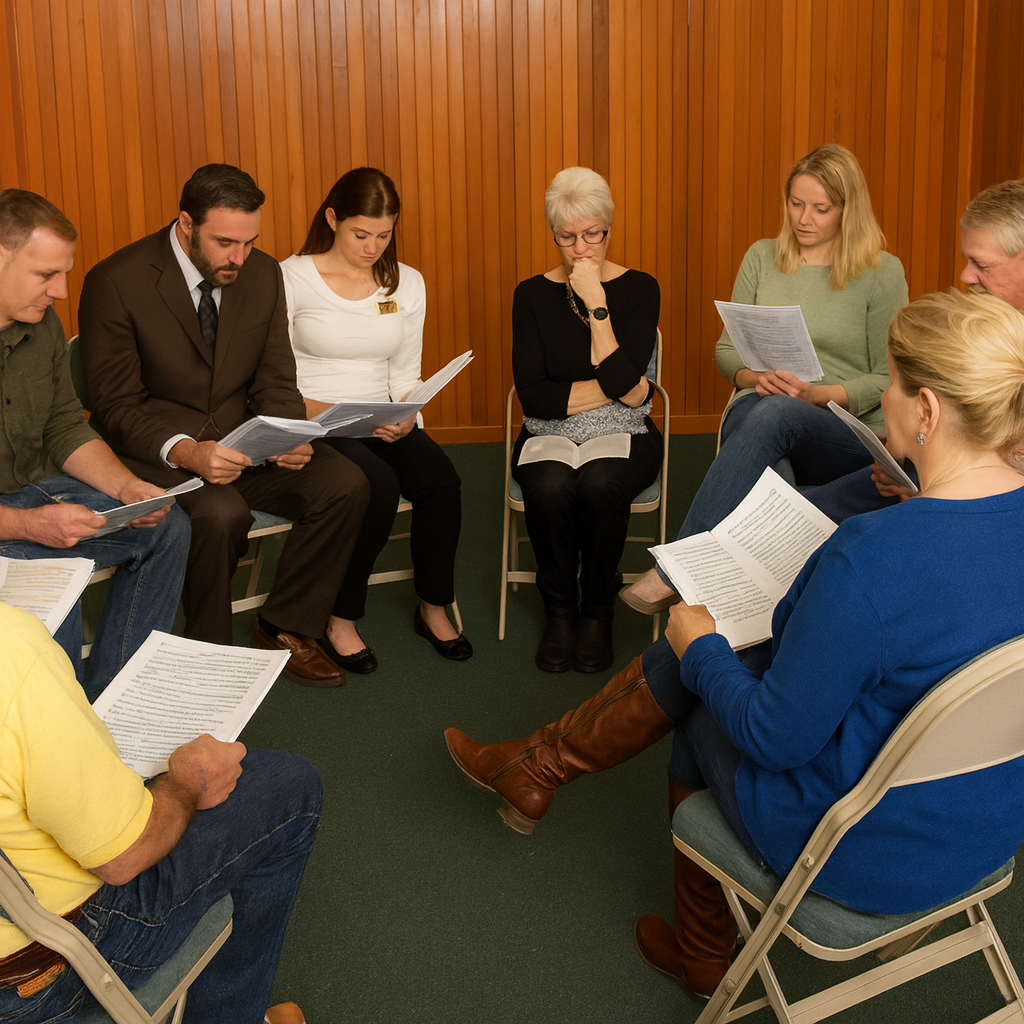Steps of Healing: Finding Recovery Through Christ
By Brenda Ong · September 30, 2025
Introduction
Steps of Healing: Finding Recovery Through Christ
Who can help my marriage? Who can know what I am going through? How can I get away from all the trauma of the past? Is there any hope?
Yes — there is hope.
As a volunteer group leader for a program that helps participants find healing through Jesus Christ, I have seen many people find a safe place to share their challenges and discover healing through Him. There is a program that meets every single week for people struggling with addiction — and also for those who want to support loved ones facing these challenges. You can join in several ways: attend online, visit a chaple near your home, or find meetings you can access virtually.
In these meetings, I have heard powerful testimonies, and many of the testimonies are along the lines of: “For the first time in my life, I feel like I can be free again. I know Jesus Christ can really heal me.” Each of us needs healing from life’s struggles — unhealthy patterns, heartache, sorrow, and stress. Christ and the steps of recovery lead us to strength and true freedom.
Why Healing Matters
While about 40 million Americans face substance use disorders and many relapse (40–60%), the National Institute on Drug Abuse reports a powerful truth: over 75% do recover and move forward into healthier living (NIDA, 2023).
Studies on addiction recovery show that recovery is possible for millions (NIDA, 2023), and new research shows that mental and physical healing are closely connected. In fact, “stress-related disorders and mental diseases should be taken into account when patients display a disturbed healing after physical injury” (Haffner-Luntzer et al., 2024, p. 7).
These numbers remind us of two things: first, that many people suffer silently; second, that recovery is possible. And while these statistics come from addiction studies, the truth is that all of us need recovery. Every human heart needs healing — whether from fear, grief, anger, unhealthy habits, or broken relationships.
Healing Through the Savior: The 12 Steps of Recovery & the 12 Principles of Support
Created by OpenAI, Inc. using the ChatGPT 5.0 model, based on a photograph owned by Intellectual Reserve, Inc.
The Addiction Recovery Program of The Church of Jesus Christ of Latter-day Saints has three main types of meetings for groups of individuals: 1) addiction recovery meetings for individuals overcoming any type of addiction or compulsive behavior, 2) spouse and family support meetings for spouses and loved ones of someone struggling with addiction, and 3) couples meetings for couples who are working on the 12 steps of recovery and the 12 principles of support.
Addiction Recovery Meetings
The Addiction Recovery Program focuses on 12 steps. These steps help people admit their need for help, turn to Jesus Christ, look honestly at their lives, seek forgiveness, and rebuild relationships. The process teaches honesty, humility, accountability, and service. It helps individuals replace harmful habits with healing through God’s power.
Spouse and Family Support Meetings
These group meetings focus on helping individuals apply the 12 Principles of Support. These principles guide loved ones to let go of control, trust God, and find peace even when someone they care about is struggling or relapsing. These principles help participants focus on setting healthy boundaries, working through personal fears and resentment, and learning how to support without enabling. The purpose of applying these 12 principles is to seek emotional healing and strength through Christ.
Couples Meetings:
Couples meetings are designed for married couples or couples in a relationship who want to support each other in applying the 12 Steps of Recovery and the 12 Principles of Support. Each week, the participants study and discuss one of the steps or principles. For example, if the 2nd step of recovery is discussed one week, then the 2nd principle of support would be discussed the following week, and so forth. Couples meetings are very effective at helping couples support each other during difficulties. Both the 12-steps and the 12-principles assist couples who are willing to turn their lives over to God, seek healing through Christ, make amends, and serve others. While one may be spouse focused on overcoming a personal addiction, the other spouse will usually be focused on finding peace through the Savior and providing support as a loved one.
A Personal Connection
Photo by Brenda Ong—all rights reserved.
In my personal life, I have seen the power of each step. Living those steps over and over has increased my ability to resist temptation and make better choices each day. They have strengthened my faith in Christ and given me hope to overcome each challenge that comes my way.
As a Christ-centered coach, I have had the blessing of guiding many people, including my own family, and witnessing their growth. I know that Christ is the only one who can help us move forward with hope and courage. Because He lives, there is always a way forward.
I am currently serving in addiction recovery programs where people have found hope after years of despair. I speak Mandarin, Taiwanese, and English, and I’ve seen across cultures and languages that people everywhere need a safe place to heal. Addiction recovery programs show us that healing is possible — but Christ shows us that healing is eternal. Christ is ready to walk with you through every burden. You’re not alone; healing is for everyone. And through Jesus Christ, every step forward is possible.
Finding Help Now
The Addiction Recovery Program (ARP) is free and open to anyone 18 and older — both those struggling with addiction or compulsive behavior, and those who want to support loved ones (The Church of Jesus Christ of Latter-day Saints, 2021).
You can start today:
Find a meeting — Use the meeting locator tool on the Church’s ARP website to find in-person or online groups that fit your schedule (Merrill, 2012)
Use the meeting locator tool on the Church’s ARP website to find in-person or online groups that fit your schedule
Learn what to expect — Many popular questions about the program are answered at the following link: “What Can I Expect from a Recovery Support Group?”
References
Haffner-Luntzer, M., Reber, S. O., Huber-Lang, M., & Ignatius, A. (2024). Regeneration at the interface of mental and physical health after trauma. Current Opinion in Biomedical Engineering, 31, Article 100545. https://doi.org/10.1016/j.cobme.2024.100545
Merrill, M. (2012, July). Addiction Recovery Program Site Added to LDS.org. Ensign. https://www.churchofjesuschrist.org/study/ensign/2012/07/news-of-the-church/addiction-recovery-program-site-added-to-lds-org?lang=eng
National Institute on Drug Abuse. (2023). Treatment and Recovery. https://nida.nih.gov/publications/drugs-brains-behavior-science-addiction/treatment-recovery
Psychology Today. (2023). Recovery from Addiction. https://www.psychologytoday.com/us/basics/addiction/recovery-addiction
Recovery Research Institute. (2023). Addiction recovery statistics. https://www.recoveryanswers.org
The Church of Jesus Christ of Latter-day Saints. (2021, May 20). Finding strength in Christ and connection through the Addiction Recovery Program. Newsroom.https://newsroom.churchofjesuschrist.org/article/find-christ-connection-through-addiction-recovery-program?utm_source=chatgpt.com

